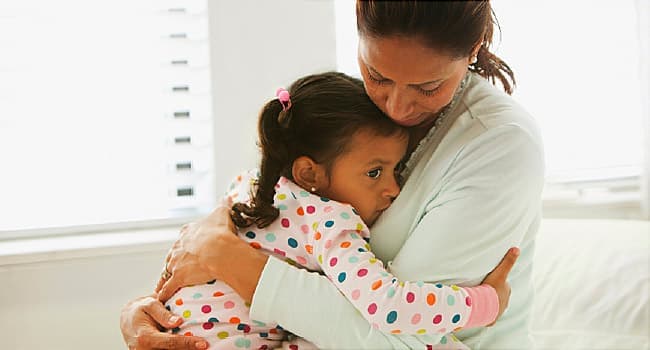
Nov. 11, 2022 – A sick child from Northern California had to go to Portland, OR, to find an ICU bed. A child in Oregon was flown to Nevada last week due to a shortage of hospital beds. The culprit? Respiratory syncytial virus, or RSV.
“These stories are not unique and are happening across the country,” says Wendy Hasson, MD, a spokesperson for the American Academy of Pediatrics and medical director of the pediatric ICU at Randall Children’s Hospital in Portland. “This has been an unprecedented respiratory viral season, both in the timing and the number of children affected.”
Most children get RSV before their second birthday. Those with the highly contagious respiratory tract infection usually have the same symptoms as a cold, but can develop complications that can turn life-threatening – particularly for infants, those with weakened immune systems, and older adults.
Hasson says the formerly predictable illness, which usually peaks in January, has moved up its timeline. She’s now seeing an “overwhelming spike” 2 months early. About 80% of the patients in her ICU have RSV. In previous years, the average age for children admitted to the hospital with the virus was under 2. Now, Hasson says she routinely sees 3- to 5-year-olds on the ward.
The recent surge in RSV cases prompted the CDC on Nov. 4 to issue a health advisory alerting the public to the spiking illness.
Pediatrician offices are booked, and right now, many parents can’t get in for a sick child visit. If you can’t go the outpatient route, it’s important to know when it’s OK to watch and wait at home, or when it’s time to head to urgent care or the emergency room. Read on for what parents should know as they navigate the recent RSV surge.
Educate Yourself About Concerning Symptoms
Hasson says parents should monitor three things in their children to decide whether it’s safe to keep them at home, or if they need to see a doctor: Breathing, hydration level, and alertness.
It’s important to seek medical care if:
These symptoms of RSV are often worse on days 4 to 6 of the infection.
How to Help Your Child at Home
Coughs, fevers for up to 5 days, runny noses, decreased appetite, and chills are among many normal and overlapping symptoms of multiple viruses, including RSV, according to Samira Armin, MD, a pediatrician in the Houston area. But fever alone is not a reason to seek immediate medical care.
“Viruses need to run their course, and antibiotics and prescriptions don’t tend to work on viruses, so doctors often recommend home care,” Armin says.
She warns against using cough suppressants for children, and instead recommends helping them hydrate and rest, and not sending them back to school or day care too early.
Parents also can prepare for treating mild RSV at home, says Anita Patel, MD, a pediatric critical care doctor at Children’s National Medical Center in Washington, DC.
She suggests caregivers stock up on acetaminophen and ibuprofen (for children over 6 months old) for pain and fever. They should also have on hand a nasal suctioning bulb with saline drops, a reliable thermometer, a humidifier, as well as phone numbers of their pediatrician, an after-hours line, and nearby urgent care centers.
Practice Prevention Techniques
The COVID-19 pandemic made most of us experts at illness prevention, so put those skills to work to prevent children from getting RSV or other illnesses during this surge.
Although no vaccine for RSV has been approved in this country yet, doctors recommend staying up to date with other vaccines, including those for flu and COVID-19, to prevent the spread and severity of these viruses. Encourage your children to wash their hands frequently, to cover their mouth or nose while sneezing or coughing, and to mask up when in public.
“Masks work very well against flu and RSV,” Patel says. “A simple surgical mask has saved me from catching both while taking care of thousands of kids.”
24World Media does not take any responsibility of the information you see on this page. The content this page contains is from independent third-party content provider. If you have any concerns regarding the content, please free to write us here: contact@24worldmedia.com